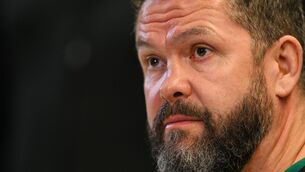There is an eye
IT'S their fifth consecutive season reaching the Heineken Cup semi-final, a phenomenal achievement, and at this stage practically every one of the Munster rugby team are household names wherever the oval ball is king.
Instantly recognisable faces include Ronan O'Gara, Anthony Foley, Peter Stringer, Paul O'Connell, Donncha O'Callaghan even Christian Cullen, one of the greatest All-Blacks of them all.















